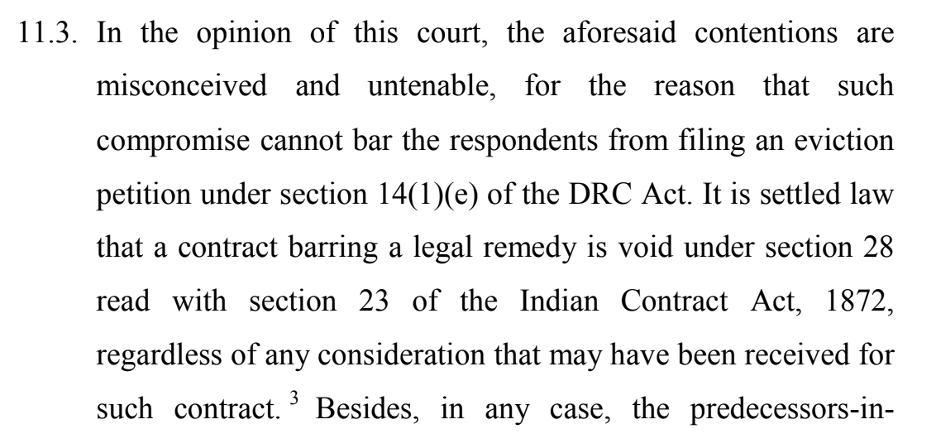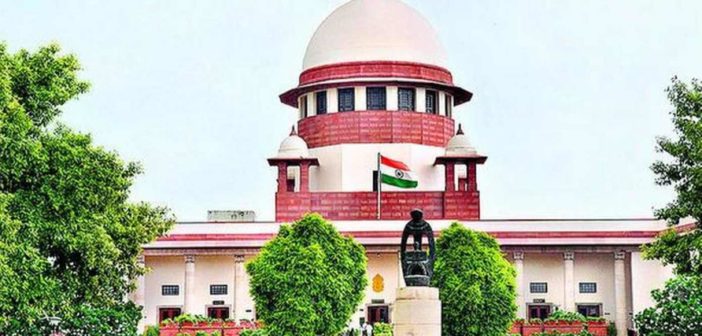In this edition of the court judgments review, we examine the Supreme Court’s ruling that boarding the wrong train is no ground to deny railway compensation, the Delhi HC’s order that the husband is entitled to divorce as the wife’s belated allegations do not defeat proven cruelty, Allahabad HC’s order that no protection for a live-in couples can be provided when woman’s marriage still subsists, among others.
Supreme Court: Boarding a Wrong Train No Ground to Deny Railway Compensation
In Shrikumar Gupta and Another vs. Union of India, the Supreme Court held that the Railways cannot deny compensation simply because a passenger boarded the wrong train. The Court said that a person with a valid ticket is still a genuine passenger under the Railway Claims Tribunal Act, even if they mistakenly enter a different train.
The case involved Shravan Kumar Gupta, who died after suffering injuries in a railway accident in May 2013. His parents sought compensation, stating that he had a valid ticket for travel from Satna to Maihar. The Railways argued that he had mistakenly boarded the Godan Express, which did not stop at Maihar, and must have jumped from the moving train. However, the Court noted that there was no evidence to support this claim.
The Railway Claims Tribunal had allowed compensation of ₹4 lakh each to the parents, but the Madhya Pradesh High Court reversed the decision and directed the parents to return half the amount. The Supreme Court found this reversal unjustified.
A bench of Justices Aravind Kumar and N V Anjaria restored the Tribunal’s award, observing that no sane person would jump from a moving express train and that the valid ticket was enough to treat Shravan as a bona fide passenger. The Court directed the Railways to pay ₹8 lakh with 9% interest within three months.
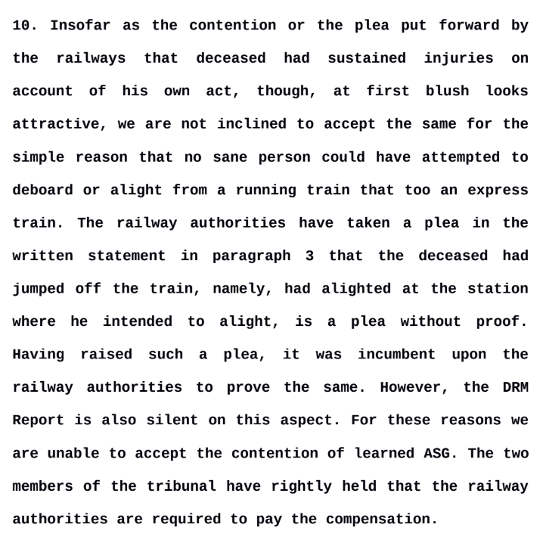
Delhi HC: Husband Entitled to Divorce as Wife’s Belated Allegations Do Not Defeat Proven Cruelty
In Gaurav Dixit vs. Priyanka Sharma, the Delhi High Court set aside a Family Court order and granted the husband a divorce, holding that the wife’s late criminal allegations could not outweigh his long-standing evidence of mental cruelty.
The husband had sought divorce under Section 13(1)(ia) of the Hindu Marriage Act, alleging that the wife repeatedly abused him, threatened suicide, denied cohabitation, and eventually deserted him. The Family Court had rejected his case.
The High Court found that the husband’s testimony was consistent and supported by evidence. In contrast, the wife’s allegations of dowry harassment and criminal behaviour surfaced only after litigation began and were not backed by earlier complaints. The Court held that such delayed accusations cannot be treated as more credible than continuous conduct that clearly amounted to cruelty.
Relying on Supreme Court decisions such as Samar Ghosh vs. Jaya Ghosh and K. Srinivas Rao vs. D.A. Deepa, the Court said that threats of false cases, withdrawal from cohabitation, and long-term abusive behaviour qualify as mental cruelty. It also clarified that the “clean hands” principle under Section 23 does not prevent relief when there is no wrongdoing by the petitioner.
Since the parties had been living separately since January 2020 and there was no chance of reconciliation, the Court dissolved the marriage and directed that the decree be drawn up.
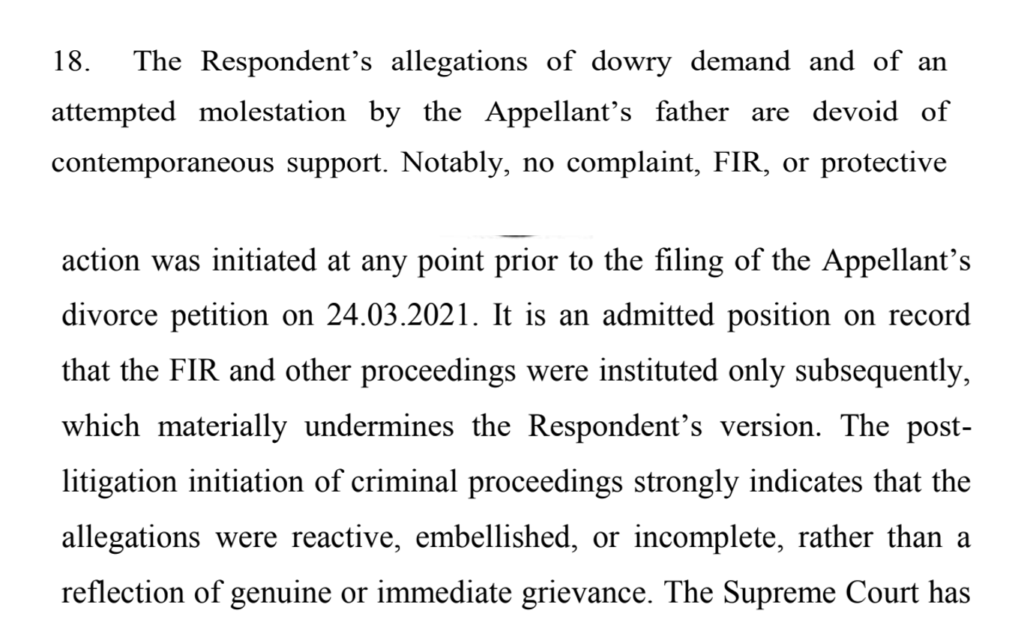
Allahabad HC: No Protection for Live-In Couple When Woman’s Marriage Still Subsists
In Smt. Sonam and Another vs. State of Uttar Pradesh, the Allahabad High Court refused to grant police protection to a live-in couple, holding that no protection can be given when the woman’s lawful marriage has not ended.
The petitioners sought a writ of mandamus directing authorities not to interfere in their relationship. The State informed the Court that the first petitioner remained legally married to her husband because no divorce decree had been granted. It also said that any live-in relationship entered into during the subsistence of a Hindu marriage could amount to the offences of bigamy under Sections 494 and 495 of the Indian Penal Code.
The Court held that personal liberty under Article 21 cannot be used to override the legal rights of a spouse. It explained that a live-in relationship is recognised only when both partners are legally free to marry. Since the woman’s marriage continued to exist, the relationship could not be considered a “relationship in the nature of marriage.”
Relying on earlier decisions such as Asha Devi vs. State of Uttar Pradesh and the Supreme Court ruling in D. Velusamy vs. D. Patchaiammal, the Court said it cannot grant protection that indirectly supports a potentially illegal relationship.
The writ petition was dismissed, although the Court noted that the woman may approach the police if she faces harassment from her husband.
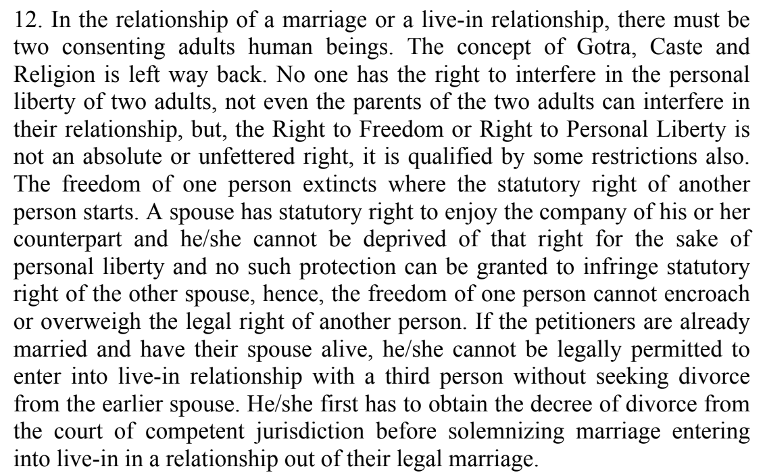
Rajasthan HC: Adult Child Has No Right to Reside in Father’s Self-Acquired House Without Consent
In Ritesh Khatri vs. Shyam Sundar Khatri, the Rajasthan High Court held that an adult child has no legal right to stay in a parent’s self-acquired property without the parent’s consent. The Court upheld lower court decisions directing the son to vacate the portion of the house where he was living.
The father had allowed his son and his family to stay in part of the house, but later revoked this permission due to disputes. The son argued that the property belonged to a Hindu Undivided Family (HUF) and that he was a coparcener. However, the father produced documents showing that he and his brother purchased and developed the property using their own funds.
Both the trial court and the first appellate court found that the son had provided no proof of HUF ownership or any independent right. The High Court agreed, explaining that living in a parent’s home out of affection or as a family member does not create ownership rights. Permission to stay can be withdrawn at any time.
The Court referred to rulings such as Maria Margadia Sequeria Fernandes vs. Erasmo Sequeria and Jai Raj vs. Shyam Lal, which clarify that permissive possession, even over long periods, does not create legal entitlement.
Calling the prolonged litigation unnecessary and harmful to family relationships, the Court dismissed the son’s appeal and imposed costs of ₹1 lakh payable to the father. The judgment makes it clear that a parent’s permission in allowing an adult child to live in the home does not give that child any ownership rights unless there is a legal transfer, proof of HUF property, or some other recognised entitlement.
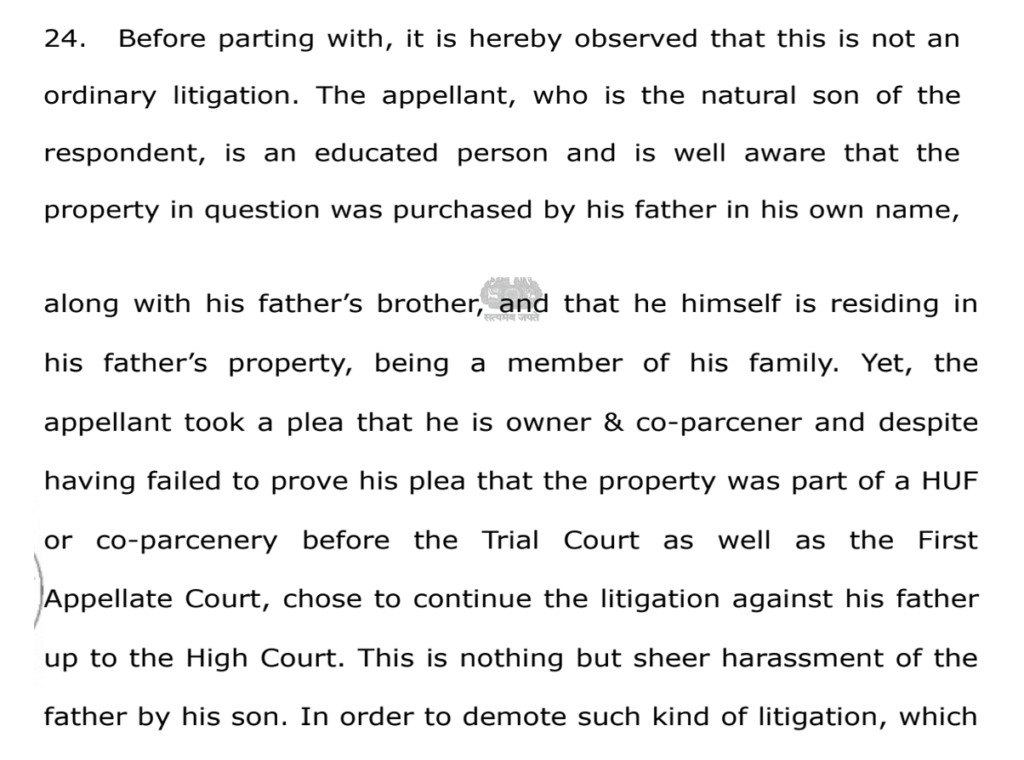
Delhi HC: Landlord’s Statutory Rights Under Rent Control Act Cannot Be Waived by Contract with Tenant
In Mohd Yahya and Others vs. Farat Ara and Others, the Delhi High Court held that a landlord cannot waive the statutory right to seek eviction under Section 14(1)(e) of the Delhi Rent Control Act by entering into a private agreement with the tenant. The Court dismissed a review petition challenging its earlier decision that upheld an eviction order.
The tenants argued that a 2008 compromise in earlier proceedings barred the landlords from ever filing an eviction petition because they had agreed not to do so in exchange for an increase in rent. The Court held that such a clause is void under the Indian Contract Act because the law does not permit parties to contractually give up their right to approach a legal forum.
The tenants also questioned a 2016 partition deed relating to the property, which is part of Waqf land. The Court noted that eviction proceedings require only proof of a landlord-tenant relationship and a superior right to possession. It added that the tenants had paid rent to the landlords’ predecessors and were therefore barred under Section 116 of the Evidence Act from disputing their landlordship.
The Court confirmed that the Rent Controller had already considered the issues of bona fide requirement and alternative accommodation. Finding no error apparent on the record, it dismissed the review petition.
Considering the tenants had occupied the premises for more than eighty years, the Court imposed costs of ₹50,000, to be paid to Friendicoes SECA within four weeks.
